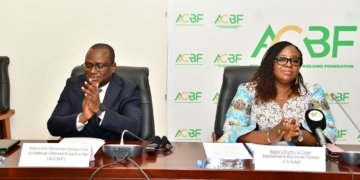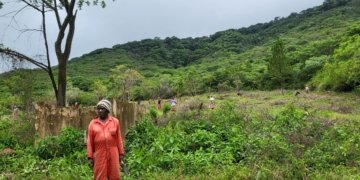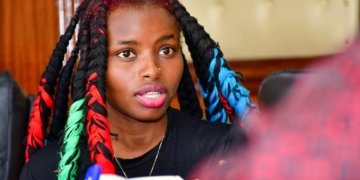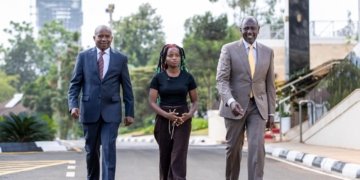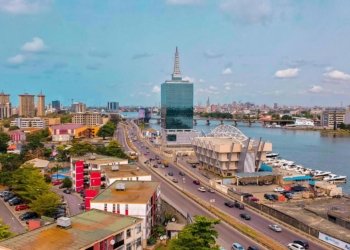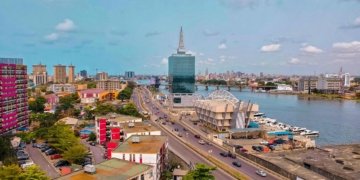BAKU, Azerbaijan (BG) — African countries presented a unified stance at the 29th Conference of Parties (COP29) in Baku, Azerbaijan, from 11-24 November 2024, highlighting the urgent need for equitable climate finance, robust global partnerships, and immediate action to address the climate crisis.
The COP is held annually, with the Presidency rotating between the five recognized UN regions. This year, Azerbaijan assumed the Presidency of the global event hosted in the capital, Baku.
Azerbaijan has a strong track record of hosting international events and has chosen Baku Stadium as the venue for COP29.
The African Group of Negotiators (AGN) called for a new climate finance target of $1.3 trillion annually by 2030, in line with the continent’s estimated $3 trillion requirement to implement its Nationally Determined Contributions (NDCs).
This demand underscores Africa’s disproportionate vulnerability to the impacts of climate change, despite its minimal contribution to global emissions.
Loss and Damage Fund: A Key Priority
A central theme of Africa’s agenda was operationalizing the Loss and Damage Fund established at COP28.
African leaders stressed the importance of this fund in providing critical resources to countries already experiencing severe climate-related events such as floods, droughts, and rising sea levels.
In addition, leaders called for financial reforms to ensure that funding is accessible, affordable, and timely.
Many African countries currently allocate more resources to debt service than to critical sectors such as health and education, exacerbating the strain on vulnerable populations.
Recognizing the need for internal reforms, African nations committed to strengthening governance and ensuring transparency in climate finance to maximize the impact of resources.
This move reflects a broader effort to build trust and ensure accountability in how climate funds are used across the continent.
Preserving Africa’s Natural Resources
Another major focus was preserving Africa’s natural resources, particularly the Congo Basin.
According to the United Nations, the basin absorbs about 1.5 billion tons of carbon annually and has sequestered 31 billion tons.
African leaders called for a comprehensive framework to guide compliance markets, ensure transparency and credibility in carbon trading, and address the undervaluation of Africa’s carbon credits.
Currently, these credits often sell for significantly less than those in regulated markets, underscoring the need for systemic reform.
Investing in Renewable Energy and Nature-Based Solutions
Renewable energy potential across the continent was showcased as a key solution for reducing emissions, creating jobs, and powering industries.
Initiatives like Morocco’s solar farms and Kenya’s geothermal projects exemplify Africa’s commitment to sustainable energy solutions.
Nature-based solutions, such as afforestation, reforestation, and mangrove protection, were highlighted for their dual role in sequestering carbon and preserving biodiversity.
Leaders also promoted climate-smart practices, including cultivating drought-resistant crops and implementing efficient irrigation systems, to enhance food security amid increasing climate disruption.
COP29 Negotiations: Mixed Outcomes
Despite Africa’s unified stance and concerted efforts, the results of COP29 were met with mixed reactions.
Developed countries proposed a $250 billion annual climate finance package for poorer countries by 2035, which was sharply criticized as insufficient.
Developing countries, including the G77, called for a $500 billion target, with African negotiators labeling the offer “totally unacceptable.”
This disparity underscores the ongoing challenges in securing adequate support for Africa’s climate initiatives.
The New Climate Finance Deal
In the early hours of Sunday, Nov. 29, 2024, parties finally agreed on the New Collective Quantified Goal on Climate Finance (NCQG), replacing the $100 billion goal set in 2009.
After two additional days of negotiations beyond the scheduled closure, a compromise $300 billion climate finance deal was reached.
The African Group of Negotiators on Climate Change (AGN) Chair, Ali Mohamed, expressed frustrations during the closing plenary, calling the deal “too little, too late, and too ambiguous in its delivery.”
“At this COP, we achieved progress in some respects, but we appear to be regressing in others,” said Ambassador Mohamed.
“Let it be clear that the agreed figure of $300 billion per annum is an inadequate amount, which has to be reviewed in 2030 and revised upward in line with needs of developing countries.”
Africa’s Closing Message: Ubuntu
“Africa stands here with a sense of realism and resignation. Delivery of the aims of the Convention and its Paris Agreement remains deeply uncertain. We are realistic about the journey ahead. But let us remember that these commitments are not acts of charity. They are acts of survival, shared prosperity, and solidarity,” said Mohamed.
“As I close, I remind us all of the southern African concept of Ubuntu: I am because you are. When Africa loses, the world loses -its critical minerals, its biodiversity, its stability. When Africa thrives, the world thrives with it,” he concluded.
Coming into COP29, Africa had clearly outlined its priorities, including a $1.3 trillion climate finance target and adaptation support for the over 1.4 billion Africans suffering the impacts of the climate crisis.
However, the mixed outcomes of COP29 highlight the need for continued advocacy and collaboration to ensure that Africa’s climate priorities are adequately addressed on the international stage.
